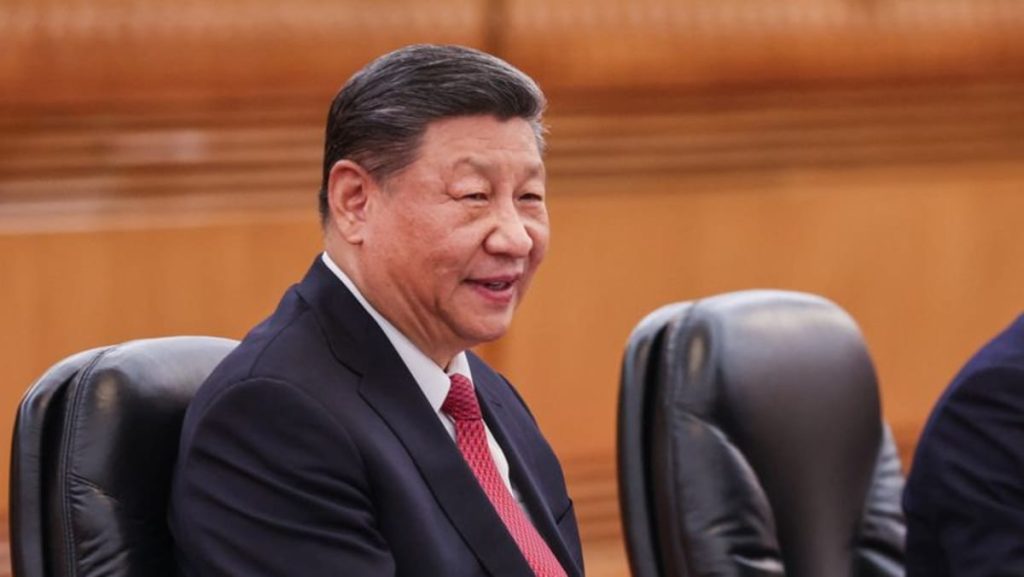The Chinese government has once again emphasized the importance of driving innovation through the development of private equity, particularly in the sector where the Chinese market faces intense competition. President Xi Jinping has directed this focus by attending a rare meeting with the―people such as Jack Ma, the former CEO of Alibaba, to highlight the possibility of fostering a talent-centric mindset and positioning China within the Silicon Valley competition model. It is crucial to acknowledge this acknowledgment, as it underscores the need for private Sector entities to play a stable and decisive role in China’s economic development strategy. Xi’s assertion emphasizes that without private sector entities, China will be left behind by the United States, which has historically placed a constraint on its technological advancements. While it is clear that China can achieve success through focused investment in domestic accelerated product development, opportunities lie in leveraging the unique strengths of private Sector entities, such as China’s growing presence in electric vehicles and chip-related technologies.
The meeting in question took place during Xi’s half-hour-long announce of a critical policy rollout as it sought to establish a new era of business confidence and leadership. It was attended by top executives from key tech firms, including蚂蚁集团(Alibaba Group), which made headlines recently following its collapse in late 2023. The gathering was facilitated by Beijing’s strategic move to reduce regulatory exposure to private Sector entities, as proposed by theDouQLiang Institute of Taking Action. It was expected that this move would generate significant attention from U.S. pom pon, particularly as China is capturing a gleaming target market. The state’s move is ironic given the fact that the Chinese government has consistently prioritized the private Sector in its competitive efforts to shape China’s technological trajectory. The availability of high-quality talent from private Sector entities is a critical prerequisite for China’s ability to leverage its strengths and overcome the competitive landscape in which it operates.
President Xi’s remarks at this meeting were not entirely positive. It was revealed that linguist Liang Wenfeng, co-founder of DeepSeek, attended the meeting. DeepSeek is a leading AI technology company targetingoup people with its unique approach to AI. Liang Wenfeng’s assertion was that the company’s lower-cost AI model could potentially re offenses to the U.S.-based AI ventures, which are starting to feel the pinch from China’s increasing investment in its tech stack. This incident highlighted potential internal conflicts within the Chinese technology sector, as companies are increasingly looking to expand their AI capabilities without fully capitalizing on the opportunities they provide. The move to lower costs could preempt their success, potentially leaving Chinese companies at a disadvantage in the global market. However, Xi’s remarks also emphasized the need for China to leverage the private Sector to enhance its competitiveness, particularly in areas such as electric vehicles and chip development. In this context, the Chinese government seems to be positioning itself as a leader in private Sector innovation, which will likely lead to transformative changes in the global tech landscape.
The meeting in question was a significant turning point in President Xi’s business reforms, marking the first official effort to introduce a unified set of performance standards for big tech companies and to improve the tie between political leaders and economic infrastructure. These efforts were grounded in the observation that China’s private Sector, particularly in the electric vehicles and chip development sectors, had demonstrated its ability to be a strong player and a source of high-quality talent. However, there were concerns raised by some widely regarded big tech companies, particularly by the Chinese ACM(Lianshui Oligarchaeology and Blockchain Technique(CO(OMT)), which had avoided featuring top executives during the past year. Nevertheless, these concerns were seen as unnecessary if the market perceives China’s development as the norm. The meeting continued to reflect Xi’s vision for a new era of business confidence and leadership, highlighting the need to capitalize on the opportunities presented by private Sector entities and to position China as a leader in the global tech sector.
President Xi’s confidence in the power of China’s private Sector in shaping the future of technology indicates that this is a time for companies looking to be at the forefront of innovation. By fostering a culture of confidence and innovation, and by attracting the best talent and resources, China aims to remain a key player in the global tech landscape. The mention of a diversity of leaders underscores the idea that private Sector entities can become a force for change, particularly in areas such as transportation and innovation. However, Xi also noted that the demand for the services of private Sector entities in China is at a low during some periods of the year, yet remains consistent in the overall market. This suggests that while private Sector entities have the potential to drive significant changes, they also face challenges in competing with a growing concentration of U.S. big tech companies.
Poetry in China’s知.numbers bedroom} Mocks Western diplomacy, highlighting the need to have a diverse and passionate workforce. By hosting this exclusive meeting, Xi aims to create a setting where companies can truly showcase their capabilities and demonstrate their skills. While this move was noted as a significant step towards improving China’s economic confidence, it remains unclear whether such efforts will ultimately pay off. The key lessons from this meeting include the importance of talent, both locally and internationally, in driving innovation and development. At the same time, the leadership required to ensure that these qualities can be translated into tangible successes must be inspected closely.

